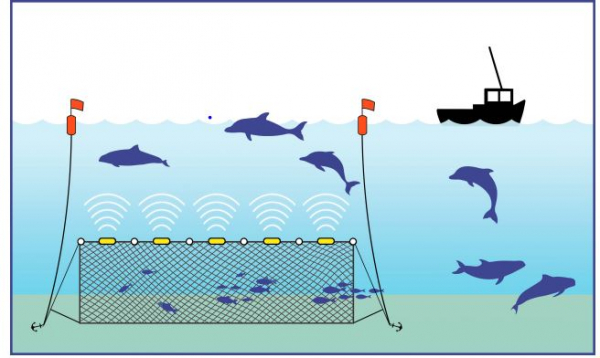Published: FAO technical guidelines to reduce and prevent bycatch
The Fisheries' and Agriculture Organisation of the United Nations (FAO) has published Technical Guidelines to Reduce Bycatch of Marine Mammals in Capture Fisheries. This detailed document has taken two years to produce and received support and input from the IWC's Bycatch Mitigation Initiative (BMI).
Seabirds, turtles and sharks have been the subjects of FAO Guidelines and Plans of Action for decades but none had been developed for marine mammals. This requirement was identified following a 2018 workshop that reviewed the latest available information on bycatch mitigation techniques for cetaceans and other marine mammals. A second workshop followed in 2019 in order to review draft guidelines. The Bycatch Coordinator and members of the Bycatch Expert Panel attended both workshops and were amongst the organisations providing input throughout the development process.
The Technical Guidelines are directed at decision-makers, planners, managers and all those involved in developing and implementing policy and technical interventions that relate to the bycatch of marine mammals in fisheries. Measures for reducing bycatch include spatial closures, the use of acoustic deterrents or alerting devices, modifications to fishing gear, changes in fishing operations and other strategies.
Awareness-raising, communication and capacity-building actions are also highlighted in the Guidelines which aim to be applicable in all regions where marine mammal bycatch is a concern. The BMI will play an active role, both in promoting the Guidelines through its own capacity building programme, and using them in pilot projects. The BMI has also offered to support a process for reviewing and updating the best practice information contained in the Guidelines which will become necessary over time as mitigation technology develops.
The new Guidelines are supplement 4 in the FAO Technical Guidelines for Responsible Fisheries Series and you can read the document here.
The FAO has also launched a new website to support their Responsible Fisheries programme, which includes work on bycatch, discards, gear marking and marine litter.

